Narnia, Nevermoor, and the Everpresent Christ Figure in Children’s Fantasy
Why does Christ show up in new and imagined worlds?
How many fantasy books have you read in which the characters celebrate Christmas? For me, it’s almost all of them, but I’ve never before thought so critically about why. Why, in a second-world fantasy where dragons and magic are real, are the characters celebrating a holiday about the birth of Jesus Christ?
Most recently, this question came up while I was reading Nevermoor by Jessica Townsend. Before I critique this very specific aspect of the book, I want to say that I enjoyed the story immensely. I can totally see why so many kids adore this series and I can’t wait to read the next installment.
For context, though, Nevermoor is a book that takes place in a world entirely different from our own (a second world, as it’s often called). And in the book, the characters celebrate Christmas–but with a twist. In the Free State (a secret realm to which the main character gets spirited away) the people either support St. Nick (red) or the Yule Queen (green). It’s a sort of sports-style rivalry that culminates in a parade on Christmas day.
I usually love when kids’ books do this (and by “this” I mean provide fantastical explanations for events that are happening in our real world). Some of my favorite series use this trope: Artemis Fowl, Percy Jackson, and Amari and the Night Brothers.
But the more I interrogated the idea of Christmas in the Nevermoor series, the more frustrated I became. Again, not at this series in particular, because Jessica Townsend is not the first author to write Christmas into a second-world fantasy and of course she will not be the last. The frustration came from the fact that, when given the openness and imaginative play to create any holiday, most Christian authors will simply choose Christmas.
In some books this makes sense, such as in Narnia. If you’re writing a Christ allegory then sure, throw in Christmas (though it would maybe make more sense if the holiday were based around Aslan but also, I think there’s some lore that a guy from our world brought Christmas to Narnia. I’m far from a Lewis scholar so I don’t know the specifics).
But when you’re reading a book that, up until that point had no mention of religion or religious themes, it’s jarring to read about Christmas.
If you’re a non-Christian fantasy reader, even these imagined worlds aren’t an escape. In a second-world fantasy where the only limit is the author’s imagination, Christ is there, looming over everything, defining the morality of the story.
And that’s what I wanted to examine: where did this start, why does it continue, and how, as a Jewish fantasy author, can I play into common tropes in my own stories while also subverting them? And, of course, how can I eschew Christ entirely when he has been omnipresent in the history (and current reality of) children’s fantasy?
My research first brought me to a book I found at a second-hand store a few years ago, called “CS Lewis and Narnia for Dummies” by Richard Wagner. I’ve always had a fascination with CS Lewis. It started before I read any of the Narnia books, and it was as simple as this: we share a birthday. He was born on November 29, 1898, and exactly 99 years later I was born.
I think there’s something about our birthday, or about Sagittarians (is that the word?) in general that lends itself to imagining new worlds. Maybe it’s hubristic of me to compare myself in any way to this man, but, the more I learn about him, the more I know he was just a silly little guy who loved Christ and Turkish delights.
CS Lewis has claimed that he didn’t set out to write a Christ allegory when coming up with Narnia. If we are to believe this (which I’m not sure I do), then it only furthers my point that Christ is inescapable in Children’s fantasy.
Aslan the lion is the Christ figure in Narnia, but it goes much deeper than that. Christianity is embedded in the fabric of this series, which conforms to the common conception of Jesus, that He is always present in our lives (I use “our” ironically here). To that point, Aslan is meant to exist in more worlds than just Narnia. As the lion himself says, “there is a way into my country from all the worlds,” implying that even in our quotidian reality we can find Aslan. And of course we can, as he is Christ.
As Richard Wagner writes in CS Lewis and Narnia for Dummies:
“Aslan’s presence in Narnia is a great ‘what if’ - what if there was a world like Narnia that needed redemption? What if Jesus Christ came into that world like he did ours? What would Christ have been like there? As the great lion and son of emperor-beyond the sea Aslan is Lewis’ answer to these questions”
For context, the “emperor-beyond the sea” is Narnia’s Christian god, and Aslan is his son. But there’s not only that: like Jesus, Aslan works through his followers, who are Peter, Susan, and Lucy (sorry Edmund).
But if there are Aslan followers in Narnia, there also have to be people who have not felt his love. Poor souls who need saving but don’t understand that their afterlife is in peril. The non-Christians.
And who are these non-Christians? Why, the dwarves, of course!
In the book The Last Battle, one of the antagonists Griffle the Black Dwarf says, “I don’t know how all you chaps feel, but I feel I’ve heard as much about Aslan as I want to for the rest of my life … We’re going to look after ourselves from now on and touch our caps to nobody … Dwarfs are for the Dwarfs.”
I kind of love this. Even if he only did this accidentally, Lewis stumbled upon a true feeling that I and many other Jews have had: I’ve heard about as much about Christmas as I want to for the rest of my life. (This is not true for me at this current moment, seeing as I literally wrote a book about this, but has been in the past.)
Another piece of Griffle’s dialogue that struck me is “we’re going to look after ourselves.” I know this is meant to be an indictment of people who turn away from Christ, but I see this as a desire for community, something that is central to my understanding of my own Jewishness.
In an article, “Dwarves are not Heroes: antisemitism and the dwarves in JRR Tolkien’s writing,” Rebecca Brackmann argues that, although Tolkien’s portrayal of dwarves has been viewed as sympathetic toward Jews, it is still steeped in antisemitism. I’m currently reading the Hobbit for the first time (I know, I know), and I love the dwarves. I’m listening to the version that Andy Serkis narrates, and when he sings the dwarves’ song at the beginning, I literally teared up.
But I do think this article raises some interesting points. Brackmann writes that, “The category of ‘jews’ provided a way for the christian culture to reject those qualities from which it wanted to separate itself.” Which is true–if the dwarves are Jews, that means that there are Christians in middle earth, and that they are a separate race.
Dr. Redcliffe Salaman (a Jewish eugenicist, which is fascinating in and of itself) said that, “Jews constitute a definite people in something more than a political sense, and that they possess though not a uniform, still distinguishing type … All, however, practically agree that whether blonde or dark, tall or short, long headed or round headed, the Jew is a Jew because he looks like one.” And it’s the same with the dwarves. Tolkien made the dwarvish language a hebraic one, and made them distinctly separate.
Even if it’s done unconsciously, Jews are almost always present in Christian fantasy, and we are almost never the good guys.
Back to Lewis, though – the Griffle quote comes up in CS Lewis for Dummies in a section where the author talks about how they “personify the cynicism and skepticism of postmodern culture.” But maybe they are just rejecting Aslan as the ever-present figure and principle of their land. They refuse to assimilate, regardless of how much Lewis might want them to, or might condemn them for not assimilating.
And Lewis does condemn them through Aslan, who says of the dwarves, “They will not let us help them. They have chosen cunning instead of belief. Their prison is only in their minds, yet they are in that prison; and so afraid of being taken in that they cannot be taken out.”
Woof! Reading this now as a Jew in the year 2023, I can recognize this for what it is, which is antisemitism. It’s such a common refrain: Jews are too smart, we’ll take over, we have taken over, and our intellect ensures that we can’t yield ourselves to Christ.
In CS Lewis for Dummies, Wagner writes, “everyone understands that following Aslan is more than a lifestyle; it’s a life choice.” And it really is, both in Narnia and in our real world. Just as there is no room for someone not to be Christian in Narnia, there is no room in the US, in our broader culture, in children’s fantasy as a whole for someone to not be Christian.
But none of this began with CS Lewis. The history of children’s literature and fantasy in western culture is inseparable from Christianity.
In their doctoral thesis, “The Confrontation between Religion and Fantasy: a Study of Nineteenth-Century Children’s Christian Fantasy,” scholar Michelle Chan writes that George Macdonald (a figure I’ll return to) “attempted to distinguish imagination and fantasy in terms of values of fantastic realms. He stated that if fantastical worlds were built with ‘new embodiments of old truths,’ they would be ‘products of imagination.’ Yet, if the literary creations were ‘inventions’ ignoring moral laws, they would be works of ‘Fancy.’”
In George Macdonald’s mind, perhaps “fantasy” was goodness, Christianity in a new form, whereas “fancy” was something more vague, amorphous.
Chan also writes that, “to some moralists and educators of the first half of the century particularly, children’s books were written to make their young reader a ‘better’ Christian.” It’s interesting to think about this in the context of children’s literature today.
Children’s literature has always been a form of indoctrination, though I use that term in its broadest sense. It is how we teach children what is valued in our society, through one author’s lens. It’s a word that’s been used to censor queer kid lit, but it’s one that should be applied more readily to books that prize a hegemonic, Christian-centered worldview.
To return to Christian fantasy: we cannot talk about this without further discussing Tolkien. He once wrote that fantasy is a “higher form of Art … the most nearly pure form, and so (when achieved) the most potent.” And who am I to disagree?
It’s true that fantasy can be used to imagine new worlds, especially when written by people who are oppressed in our real world. But it can also be a tool of cementing the current world order. If you write Christmas into your second-world fantasy, you are passively agreeing with the idea that Christ exists in all fantasy worlds. That even in realms beyond our imagining, we are guided by His hand. Again, I think there is a place for Christmas in second-world fantasies, but it should be there for a reason, not just because it is a fun holiday to celebrate. Make another one up! That’s part of the joy of being free of the constraints of the real world.
Chan writes that her thesis will “take the two-world structure of fantasy as a major component of Christian fantasy. It is often found that the fantastic world embodies some sort of idealistic values that the realistic world is deprived of. The fantastic world in some cases, such as those in MacDonald’s fantasies, is the final reality that embodies all religious truth.”
Chan then pulls a quote from English professor Claudia Nelson that really sums up the situation: “around 1850, fantasy writing became a pursuit of the eminent.” Authors started trying to combine “serious messages with ornamental settings.”
The word “ornamental” is doing a lot of work here - it’s as if the world itself does not matter, only the religious messaging that the authors were trying to convey to children. And again, it’s laughable to me that people criticize marginalized authors for trying to indoctrinate children when the earliest form of literary indoctrination in children’s fantasy came from Christian authors.
I’ll let Michelle Chan (an actual scholar) sum it up in her own words:
“The influence of Christian beliefs manifested in children’s literature continued during the eighteenth century when the evangelicals saw the necessity to inoculate children with religious values: “The effort to influence children’s worldviews and psyches, to teach them what is considered essential to their well-being in this world or in the hereafter through appeals to their love of narrative and drama, has always characterized much if not all children’s literature.”
In another thesis by the author Monika Barbara Hilder entitled “Educating the Moral Imagination: The Fantasy Literature of George MacDonald, C.S. Lewis, and Madeline L’Engle,” I learned that even Madeline L’Engle approached her (in my mind fairly radical) literature from a Christian lens.
Hilder writes that “certainly, the historical appropriation or abuse of Christianity, so-called, to sanction tools of oppression … is ever to be distinguished from the liberatory nature of sincere Christianity which writers like … L’engle, explore.”
I do genuinely appreciate this perspective, as it’s hard for me to think of Christianity separate from its oppressive elements. I don’t know if I agree with the concept that Christian fiction can in any way be “liberatory,” but I do believe that there are ways to write Christianity and Christian ideals into children’s literature that can explore broader themes.
Again this article supports the claim that, “Mythic fiction, stories which embody eternal human truths beyond literalism, may be regarded as the highest form of fiction.” But if this is true then why are these “eternal human truths” almost always Christian ones?
I found this article and others with the search terms “CHRISTIANITY” AND “FANTASY” AND “CHILDREN’S LITERATURE” on google scholar. When I replaced “christianity” with “judaism,” almost nothing came up.
One of the fathers of modern children’s fantasy, from whom Tolkien, L’Engle, and Lewis all drew inspiration, is George MacDonald, who I mentioned earlier. He believed that “the childlike is the divine.”
This is something (I hope) that all children’s fantasy authors can agree with. We are writing books for people who are learning about the world for the first time. We have an obligation to show them not only how the world is, but how it could be.
And I, for one, can’t wait to get started.




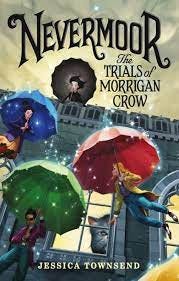
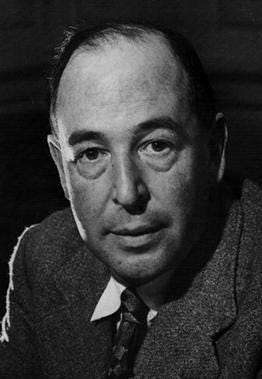
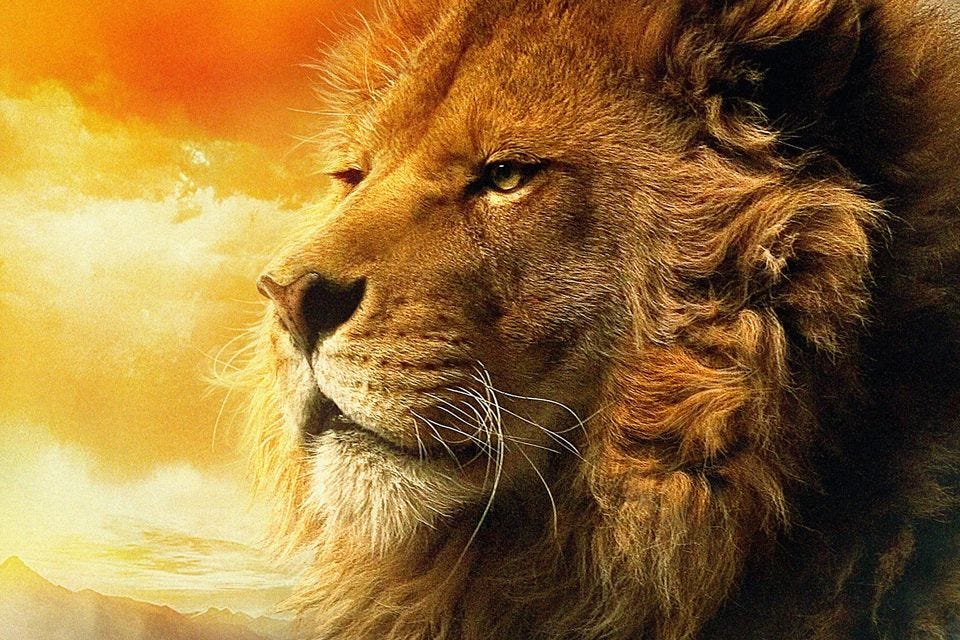
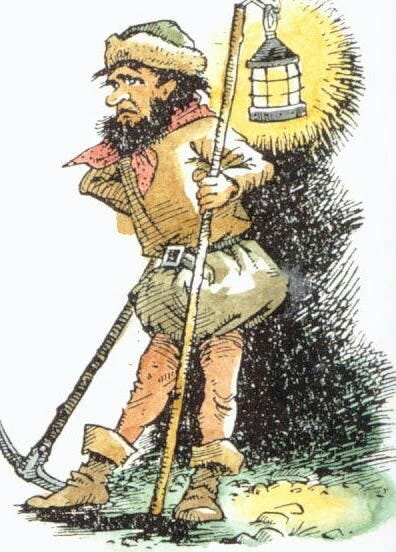
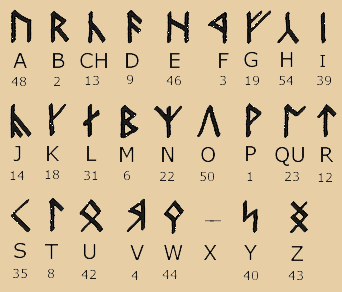
Had been waiting for this analysis and it did not disappoint!
As someone with a dad who was raised catholic but left the church as soon as he could and a lightly-practicing spiritist mom, who raised me to choose whatever religious path I wanted and I opted for none (lol), the Christianism embedded in children’s story always felt boring to me and I have sometimes not been able to get into them because of it.
But one thing that I started realizing later in life, and that caught me by surprise, is the fact that I don’t mind stories embedded with (some) other religions and do find them to be very interesting. Maybe it’s because I was born in a 64,6% Catholic country (Brazil, as of 2010) and it was THE religion I was aware of and I couldn’t care less about it, and now I’m more open and also just truly think other religions that aren’t THAT one are more compelling.
To wrap this up I think it’s fitting to talk about my experience with Narnia, which was: I loved the movies, got my grandpa to gift me the books 15 years ago, read the first two stories and did not care for it (figured out later when my brain developed it was probably because of the whole religion thing), lost my grandpa a few years ago, decided I wanted to finish the book as a tribute to him and how much he always encouraged my reading, went in knowing it was Very Christian and was able to enjoy it more by ignoring it, but still wished it wasn’t so infused with it (especially since the allegory apparently wasn’t his intention? wild).
Anyways, I started reading The Way Back for the book club and, as expected, I’m already so much more captivated by it and that’s so refreshing! And I can’t wait to see the worlds you build on your own journey!!!!